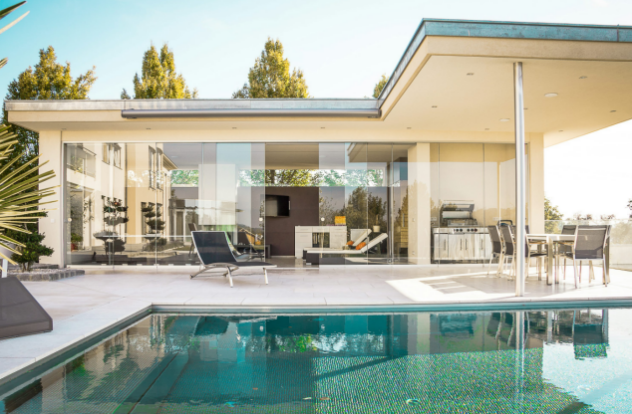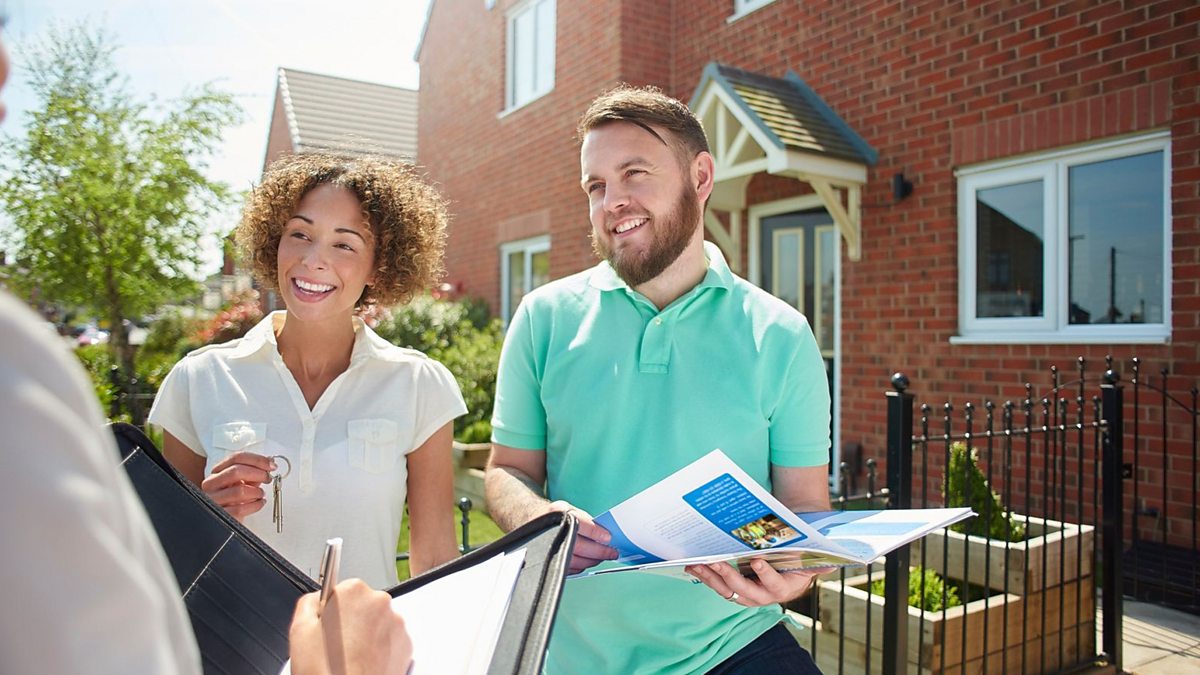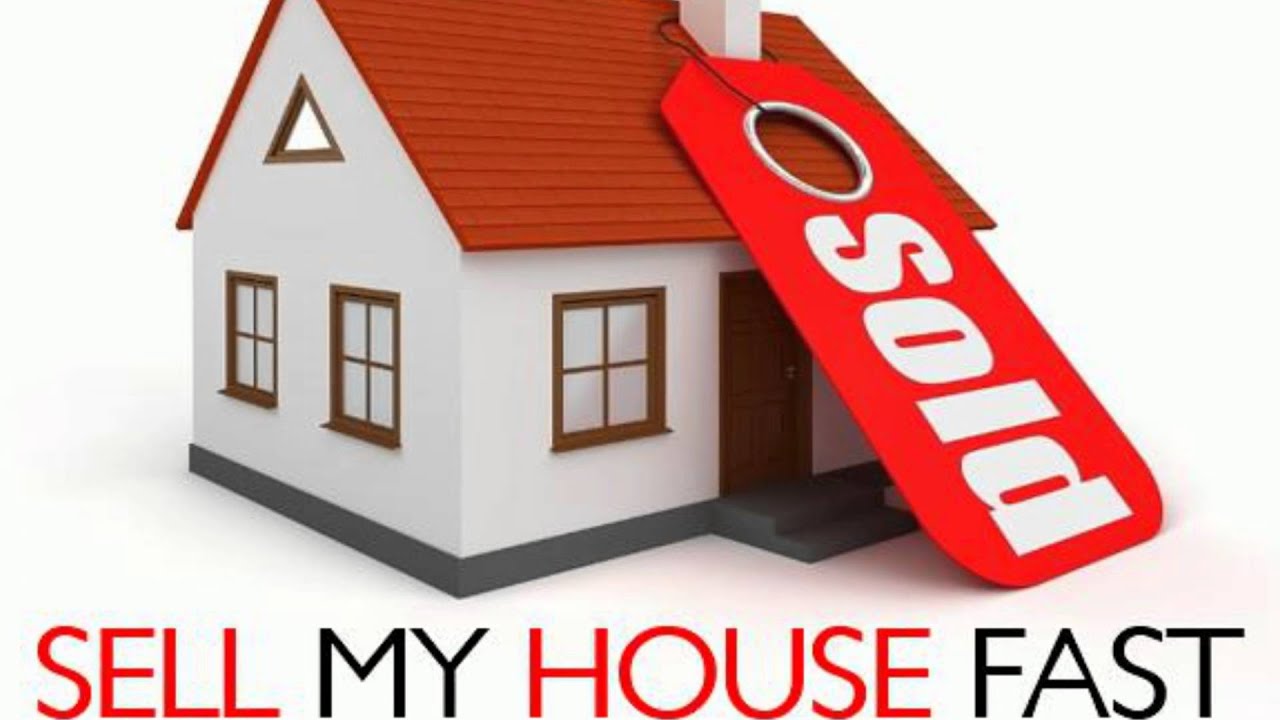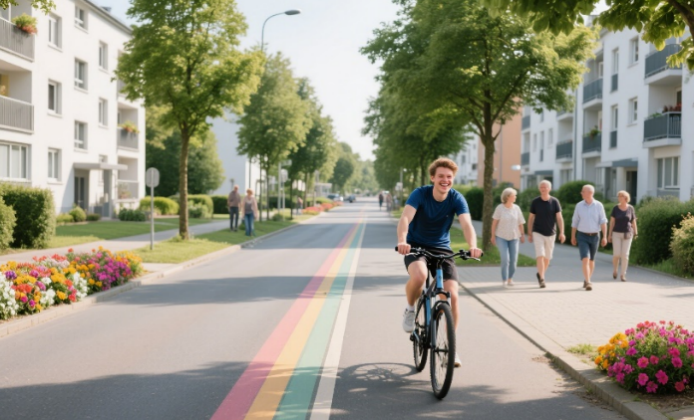
In the heart of Munich, a quiet revolution is reshaping urban living. The "Car-Free Condo" movement, where residential projects offer discounts and perks to residents without private vehicles, highlights a growing trend across Germany: the rise of bike-friendly communities. Beyond their environmental and health benefits, these neighborhoods are demonstrating significant premium potential, particularly through the lens of parking cost savings—estimated at around €5,000 per year—and broader lifestyle enhancements that appeal to a generation prioritizing sustainability, affordability, and quality of life.
The Economics of Parking-Free Living
Traditional urban housing often includes substantial costs associated with vehicle storage. In German cities, a single parking space can cost between €20,000 and €50,000 to purchase, plus annual maintenance fees and potential municipal charges. Bike-friendly communities flip this model by reducing or eliminating dedicated car parking spaces. Munich's pioneering projects offer residents discounts equivalent to the annual parking cost savings—up to €5,000 per year—either through lower rent, reduced condo prices, or subsidized mobility services like shared bikes or car rentals. This financial incentive directly appeals to the 20-40 age group, who often face tight budgets but value flexible, cost-effective living solutions.
Moreover, these savings translate into long-term property value appreciation. A 2024 study by the German Urban Development Institute found that neighborhoods with robust cycling infrastructure—including protected bike lanes, secure bike storage, and proximity to cycling-friendly amenities—experienced a 12-15% higher property value growth over five years compared to conventional areas. Buyers are increasingly willing to pay a premium for homes that align with their eco-conscious lifestyles and reduce their dependence on costly car ownership.
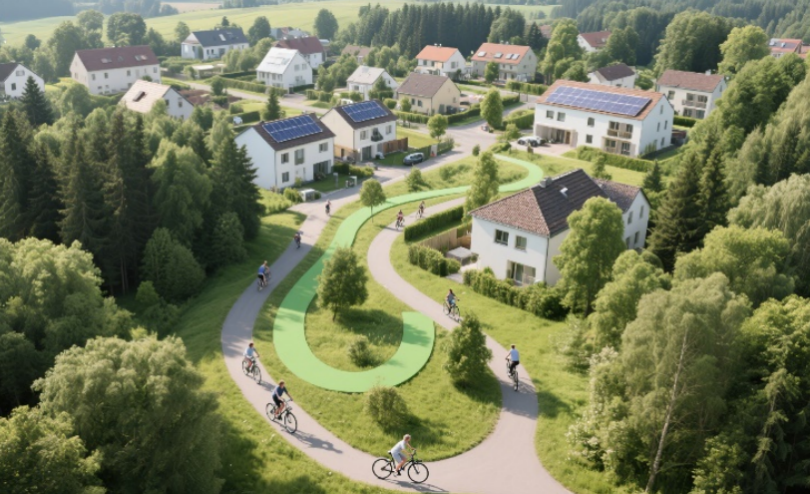
Lifestyle Premium: Health, Convenience, and Community
Bike-friendly communities offer more than just financial savings; they deliver a lifestyle upgrade. Cycling promotes physical activity, with studies linking regular biking to a 30% lower risk of cardiovascular diseases and improved mental well-being. For young professionals and families, this active lifestyle fits seamlessly with busy schedules, as cycling often proves faster than driving in congested urban centers. Munich's network of 850 km of bike lanes, combined with "cycling superhighways" connecting suburbs to the city center, ensures residents can commute efficiently and safely without a car.
These neighborhoods also foster stronger community ties. Shared bike repair stations, communal bike storage areas, and car-free courtyards create spaces for interaction, turning streets into social hubs rather than traffic corridors. Developers are enhancing this appeal by integrating amenities like bike-sharing stations, electric cargo bike rentals, and partnerships with local bike shops for maintenance discounts. Such features cater to a demographic that values community engagement and accessible, sustainable transportation options.
Environmental Values as a Market Driver
In an era where climate action is a top concern, especially among younger generations, bike-friendly living serves as a tangible way to reduce carbon footprints. A household without a car can cut its annual CO₂ emissions by approximately 2.5 tons—equivalent to the emissions from 10,000 km of driving. This environmental benefit aligns with Europe's broader goals to achieve carbon neutrality by 2050, making these communities not just a lifestyle choice but a contribution to global sustainability efforts.
Real estate developers are capitalizing on this trend by marketing bike-friendly features as key selling points. Projects in Munich, Berlin, and Cologne now highlight their "bike score"—a metric assessing cycling infrastructure quality—alongside traditional metrics like square footage and proximity to transit. This shift reflects a market where environmental responsibility and livability are increasingly central to property valuation.
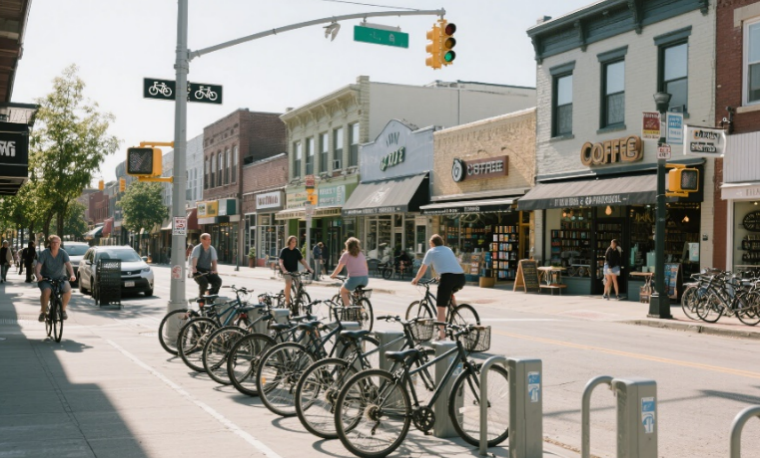
The Future of Urban Living Premium
As cities worldwide grapple with traffic congestion, air pollution, and housing affordability, Germany's bike-friendly communities offer a blueprint for sustainable urban development with clear financial and lifestyle premiums. By leveraging parking cost savings, enhancing resident well-being, and aligning with environmental values, these neighborhoods are proving that going car-light doesn't mean compromising on convenience or comfort—instead, it offers a premium package of affordability, health, and sustainability that resonates deeply with today's conscious consumers.
For the 20-40 demographic, caught between economic pressures and a desire to live meaningfully, bike-friendly communities present an appealing proposition: a home that saves money, boosts quality of life, and contributes to a greener future. As this movement gains momentum, the "parking-free premium" may soon become a standard feature of desirable urban living, transforming how we value homes in the 21st century.
